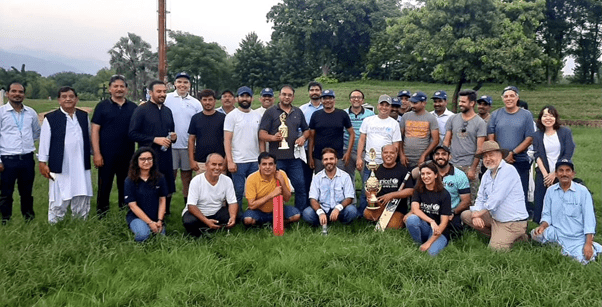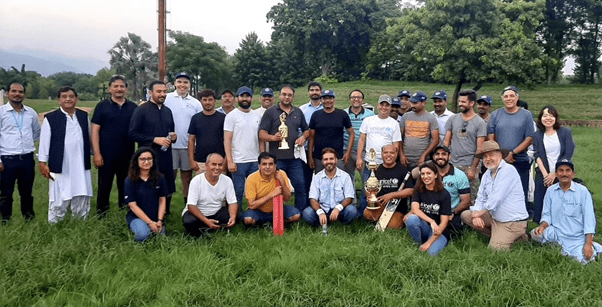
Global health continues to take a page out of capitalism’s less flattering playbook; it’s hard to ignore the immense wealth in just a few pockets. This brings to mind the world of elite sporting leagues, such as the English Premier League (EPL). In 2020, the EPL generated a staggering 7.6 billion British pounds in revenue, surpassing the GDP of 50 countries. How, then, does the EPL reflect global health dynamics, and what lessons from sports could pave the way for improved health outcomes worldwide?
The ‘Global North’ member states and the private sector are like EPL team owners. Quite a few of them have immense financial power and influence – steering various agendas – most beneficial, others questionable. The star clubs – equivalent to multilateral organizations and major philanthropic foundations – dominate the scene, powered by their resources and expertise. In contrast, NGOs/for-profit international development ‘players’ can be likened to smaller clubs. Occasionally achieving great feats akin to securing a major award, they remain vulnerable to setbacks, risking relegation or dissolution.
In the realm of global health, just as in the world of sports, women grapple with issues of equal representation, reflecting broader societal inequities. This parallel underlines the pervasive nature of gender disparities across different sectors. The landscape appears to be slowly improving. While women are seeing progress in sports in certain markets around equity, there are notable setbacks in others.
The EPL boasts a massive outreach, broadcasted in 212 territories, reaching 643 million homes with a potential TV audience of 4.7 billion fans. What if global health could amass a following akin to football? Consider promoting global health champions who motivate the younger generation to combat malaria and TB, just as the football world ignites passion in young talents to attain excellence in football. Take, for instance, Kylian Mbappe, who rose to stardom despite being born in one of Paris’s toughest suburbs.
Top football clubs, like Liverpool with its ‘pre-academy’ for U5s, identify potential talents at a tender age. Can global health adopt a similar approach to nurturing prodigies through specialized programs at a more ‘ethical’ age? I started my global health career only in my mid-20s, having known little about the field before that. If I had been introduced to it in high school, I might have discovered my career path much earlier.
Consider the salary structures. Suppose public health professionals received compensation comparable to top-tier football players. Could it 1) ensure talent retention and 2) attract elite professionals from the private sector, thereby addressing the complacency often observed in the field? Of course, I’m not suggesting we start tossing Kevin De Bruyne-level paychecks at public health professionals (though that would be quite the headline!). But you catch my drift.
How about an annual transfer window, akin to football, allowing organizations to offload underperformers or those with questionable ethics? Conversely, when high achievers decide to move, shouldn’t the organizations that discovered them be compensated, perhaps through a transfer fee? These fees could be substantially higher when the private sector comes calling.
I often draw parallels between global health and sports, and witnessing more sporting organizations promoting global health initiatives would be heartening. It’s about more than just showcasing multilateral organizations during events or donating apparel space for logos. While these gestures are noteworthy, there’s room to deepen this synergy, leveraging the universal appeal of sports to boost global health outcomes. Athletes like LeBron James are already leading the way with initiatives, particularly in education. Likewise, Cristiano Ronaldo, often dubbed football’s biggest villian, financed a $83,000 brain surgery for a child, contributed $165,000 to a cancer center in Portugal, and gifted $1 million to hospitals during the pandemic’s peak. As a cricket fan, I am impressed by UNICEF’s recent strategic partnership with cricket legend Sachin Tendulkar, who is championing children’s education and nutrition in India and Sri Lanka. It’s crucial to recognize and applaud such efforts consistently.
Personally, I’m excited to co-lead an initiative to introduce a professional rugby league club from New Zealand’s South Island into the Australian professional rugby league competition. While we’re in the early stages, our vision for the club is clear: to be a beacon for the South Island community, addressing pressing issues like food insecurity, entrenched poverty, healthcare challenges, and alarmingly high youth suicide rates. Beyond New Zealand’s breathtaking landscapes and cinematic associations, my country of birth grapples with grave challenges. As a club, we want to make a significant difference in community health outcomes through our club’s potential induction into the league.
Combining the positives from both sports and global health can be beneficial. Although big sports leagues such as the EPL share parallels with global health, for better and for worse, the emphasis should be on mutual learning and promoting a fairer, healthier world.

WFP and UNICEF Pakistan Annual Cricket Match in 2022 in Islamabad.